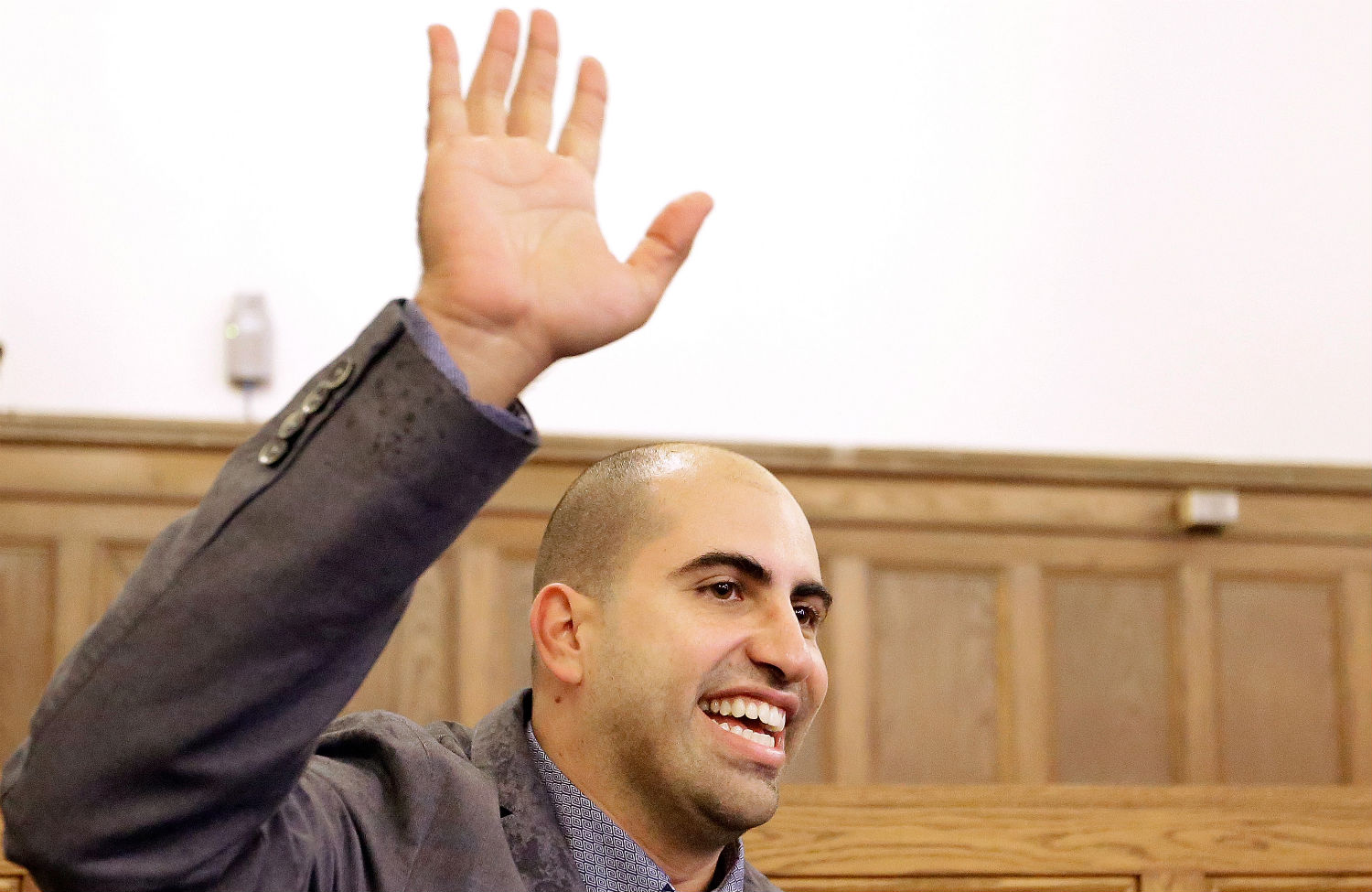
Steven Salaita, Ayaan Hirsi Ali and Academic Freedom Steven Salaita, Ayaan Hirsi Ali and Academic Freedom
Either neither of them have a place on college campuses, or both do.
Sep 15, 2014 / Michelle Goldberg

Liberal Zionism Is Dying. The Two-State Solution Shouldn’t Go With It. Liberal Zionism Is Dying. The Two-State Solution Shouldn’t Go With It.
In 1948, Hannah Arendt published an essay in the magazine Commentary—at the time still a liberal magazine—titled “To Save the Jewish Homeland.” She lamented the increasingly militaristic, chauvinistic direction of Zionism, the virtual unanimity among Jews in both the United States and Palestine that “Arab and Jewish claims are irreconcilable and only a military decision can settle the issue; the Arabs, all Arabs, are our enemies and we accept this fact; only outmoded liberals believe in compromises, only philistines believe in justice, and only shlemiels prefer truth and negotiation to propaganda and machine guns…and we will consider anybody who stands in our way a traitor and anything done to hinder us a stab in the back.” This nationalist strain of Zionism, she predicted, might succeed in establishing a state, but it would be a modern-day Sparta, “absorbed with physical self-defense to a degree that would submerge all other interests and activities.” It would negate the very humanistic Jewish values that originally fed the Zionist dream. “Palestine Jewry would eventually separate itself from the larger body of world Jewry and in its isolation develop into an entirely new people,” she writes. “Thus it becomes plain that at this moment and under present circumstances a Jewish state can only be erected at the price of the Jewish homeland.” It’s difficult to avoid the conclusion, sixty-six years later, that she was right. That’s why Antony Lerman’s op-ed in The New York Times this Sunday, “The End of Liberal Zionism,” strikes such a chord. Lerman is a former director of the Institute for Jewish Policy Research in London and was for a long time a liberal Zionist himself; he became an Israeli citizen in 1970. Yet now, he writes, “The romantic Zionist ideal, to which Jewish liberals—and I was one, once—subscribed for so many decades, has been tarnished by the reality of modern Israel. The attacks on freedom of speech and human rights organizations in Israel, the land-grabbing settler movement, a growing strain of anti-Arab and anti-immigrant racism, extremist politics, and a powerful, intolerant religious right—this mixture has pushed liberal Zionism to the brink.” He’s right. Consider J Street, which began with so much promise as a voice for liberal Zionism in the United States, one that would criticize expansionist Israeli policy and advocate for a two-state solution. Succumbing to the very unanimity Arendt decried all those years ago, it disgraced itself by declining to stand against Israel’s most recent war on Gaza, a departure from its opposition to 2009’s Operation Cast Lead. That, in turn, has led some of its supporters to jump ship for the more left-wing, non-Zionist Jewish Voice for Peace. (Full disclosure—I’ve spoken at J Street conferences, though not in several years.) In some ways, J Street’s position is an impossible one—it describes itself as pro-Israel and pro-peace, a difficult stance to sustain at a time when Israel itself acts so consistently as an impediment to peace. “The only Zionism of any consequence today is xenophobic and exclusionary, a Jewish ethno-nationalism inspired by religious messianism,” writes Lerman. “It is carrying out an open-ended project of national self-realization to be achieved through colonization and purification of the tribe.” Yet it doesn’t necessarily follow from this, as Lerman implies, that disenchanted liberal Zionists should therefore support a binational state. “In the repressive one-state reality of today’s Israel, which Mr. Netanyahu clearly wishes to make permanent, we need a joint Israeli-Palestinian movement to attain those rights and the full equality they imply,” he writes. “Only such a movement can lay the groundwork for the necessary compromises that will allow the two peoples’ national cultures to flourish.” The appeal of such a solution is obvious. There has always been an internal tension in the idea of a Jewish democratic state, since it’s hard to argue that a country devoted to the aspirations of one religious or ethnic group can also be a state for all its citizens, whatever their backgrounds and beliefs. Further, as Lerman so clearly points out, a “de facto single state already exists; in it, rights for Jews are guaranteed while rights for Palestinians are curtailed.” With a two-state solution seeming ever more impracticable, surely it simply makes more sense to give Palestinians full rights in the state in which they already live? The problem here is that however quixotic a two-state solution might be, a binational state is, at least right now, even more so. The binational model is barely workable in Belgium, which went 589 days without a government from 2010–11 because the Flemish and the Walloons were unable to transcend their disagreements and form a governing coalition. There is certainly no reason to assume that the Israelis and the Palestinians can coexist in a single state more peacefully than the various peoples of the former Yugoslavia. Meanwhile, the majority of Palestinians still want their own state. As The New York Times reported, in a poll earlier this year, “about a third of all Palestinians expressed interest in the one-state alternative.” Eventually, this will likely change as continuing settlement pushes a two-state solution even further out of reach. The idea of a single state has particular traction among the young; Palestinian president Mahmoud Abbas’s own son, Tareq Abbas, supports it. “If you don’t want to give me independence, at least give me civil rights,” he told the Times. Please support our journalism. Get a digital subscription for just $9.50! If and when a majority of Palestinians start demanding the rights of citizens within the country in which they are currently living, there will be no credible argument against them, and liberal Zionism will become a true impossibility. But the chance of any resulting state surviving instead of devolving into civil war and grotesque violence are not good. They are even more remote, in fact, than the chances that Israel will evacuate the settlements and come to a political agreement giving the Palestinians a state of their own. “Liberal Zionists believe that Jewish criticism of Israeli policies is unacceptable without love of Israel,” writes Lerman. “They embrace Israel as the Jewish state. For it to remain so, they insist it must have a Jewish majority in perpetuity.” But support of a two-state solution doesn’t require that one love Israel, only that one acknowledge its reality. Whatever the justice of its creation, the Jews who live there aren’t going anywhere; a majority of them are Mizrahi, Jews from the Middle East and North Africa, and thus indigenous to the region if not to the land itself. They don’t want to live with the Palestinians and the Palestinians don’t want to live with them. It would be beautiful if Jews and Arabs in historic Palestine could co-exist in a single state, but it’s a utopian idea in a part of the world that has already seen too many airy messianic dreams turn to tragedy. Read Next: Michelle Goldberg on how tear is an abortifacient and why the anti-abortion movement to oppose its use.
Aug 26, 2014 / Michelle Goldberg
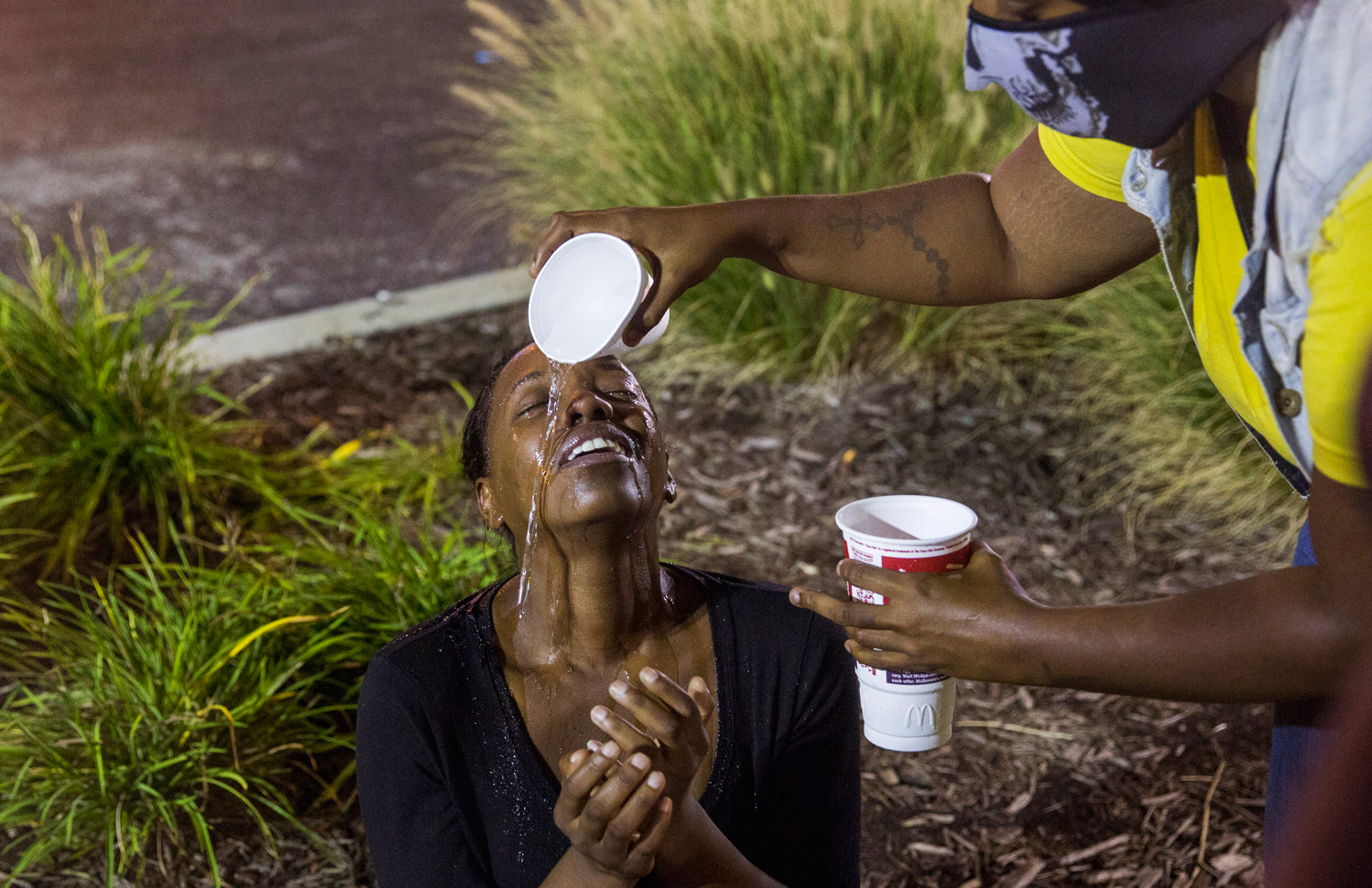
Tear Gas Is an Abortifacient. Why Won’t the Anti-Abortion Movement Oppose It? Tear Gas Is an Abortifacient. Why Won’t the Anti-Abortion Movement Oppose It?
If the anti-abortion movement could rouse itself to oppose spraying a civilian population with miscarriage-causing chemicals, it might actually make a difference.
Aug 19, 2014 / Michelle Goldberg

Jezebel’s Porn Problem and the Price of Social Media Jezebel’s Porn Problem and the Price of Social Media
Jobs that demand constant social media interaction create different burdens for men and women.
Aug 12, 2014 / Michelle Goldberg
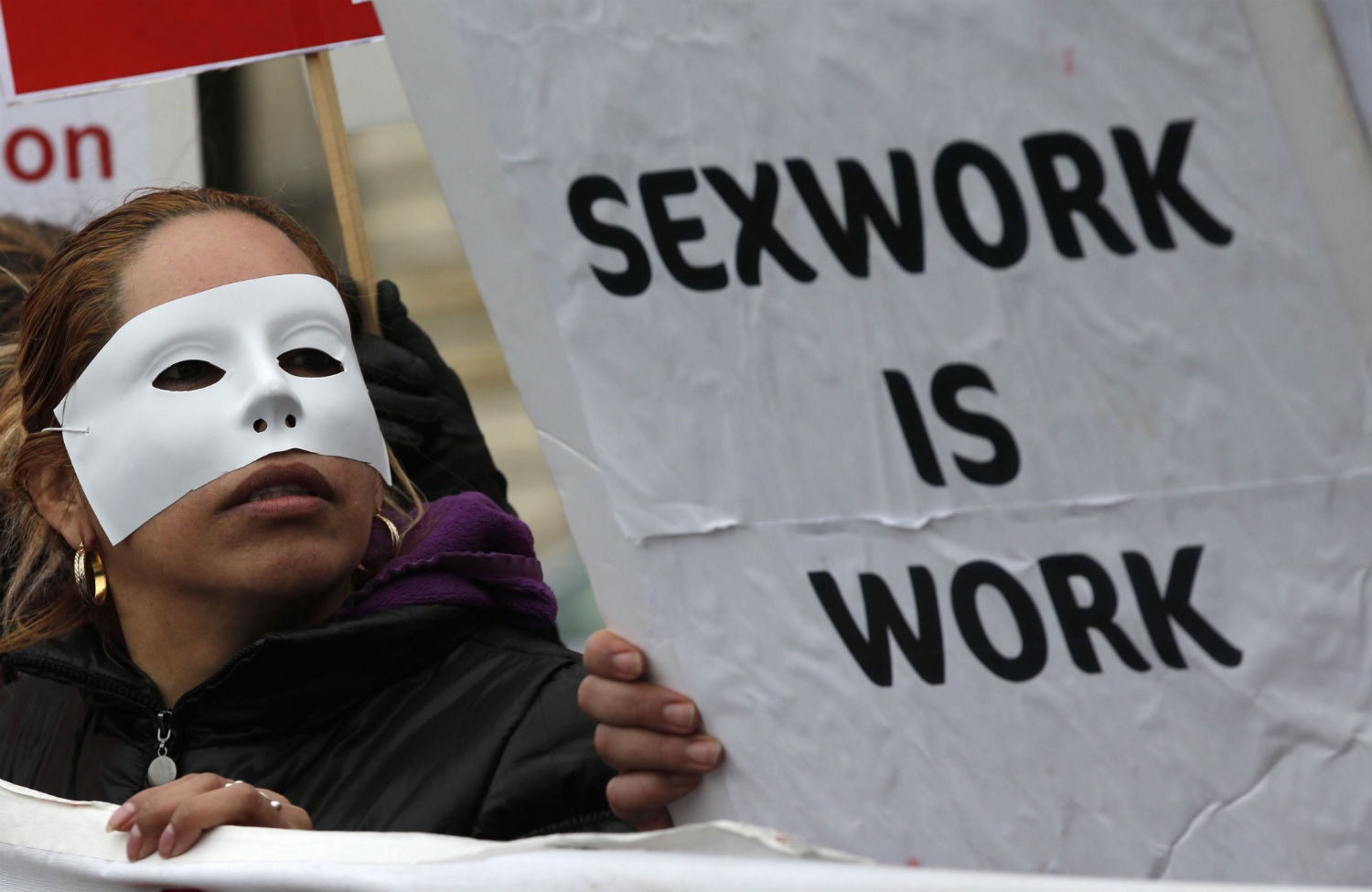
Should Buying Sex Be Illegal? Should Buying Sex Be Illegal?
The so-called “Swedish model” banning the purchase but not the sale of sex is catching on in Europe. But does it work? And for whom?
Jul 30, 2014 / Feature / Michelle Goldberg

Why It Matters That Norman Finkelstein Just Got Arrested Outside the Israeli Consulate Why It Matters That Norman Finkelstein Just Got Arrested Outside the Israeli Consulate
Passionate American opposition to Israeli policy has rarely been more important.
Jul 29, 2014 / Michelle Goldberg
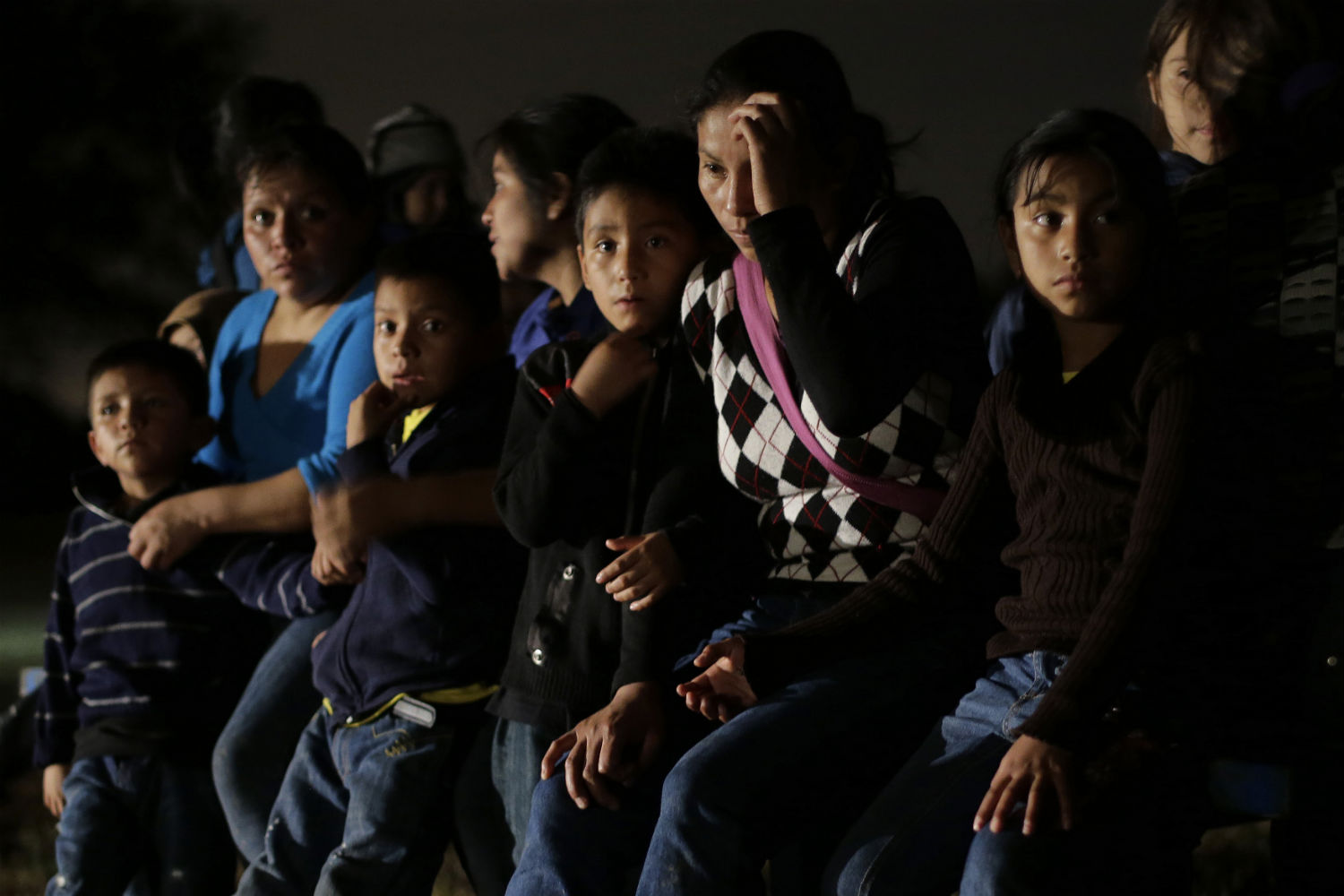
Yes, Mr. President, the Border Kids Are Refugees Yes, Mr. President, the Border Kids Are Refugees
The 52,000 unaccompanied children who have shown up at the border are fleeing gang violence and have valid claims to asylum.
Jul 16, 2014 / Michelle Goldberg
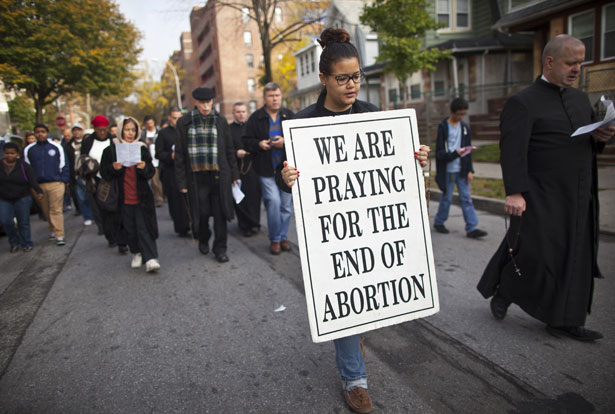
Alito’s ‘Hobby Lobby’ Opinion Is Dangerous and Discriminatory Alito’s ‘Hobby Lobby’ Opinion Is Dangerous and Discriminatory
The 5-4 decision strikes a blow against women’s rights and expands corporate power.
Jun 30, 2014 / Michelle Goldberg
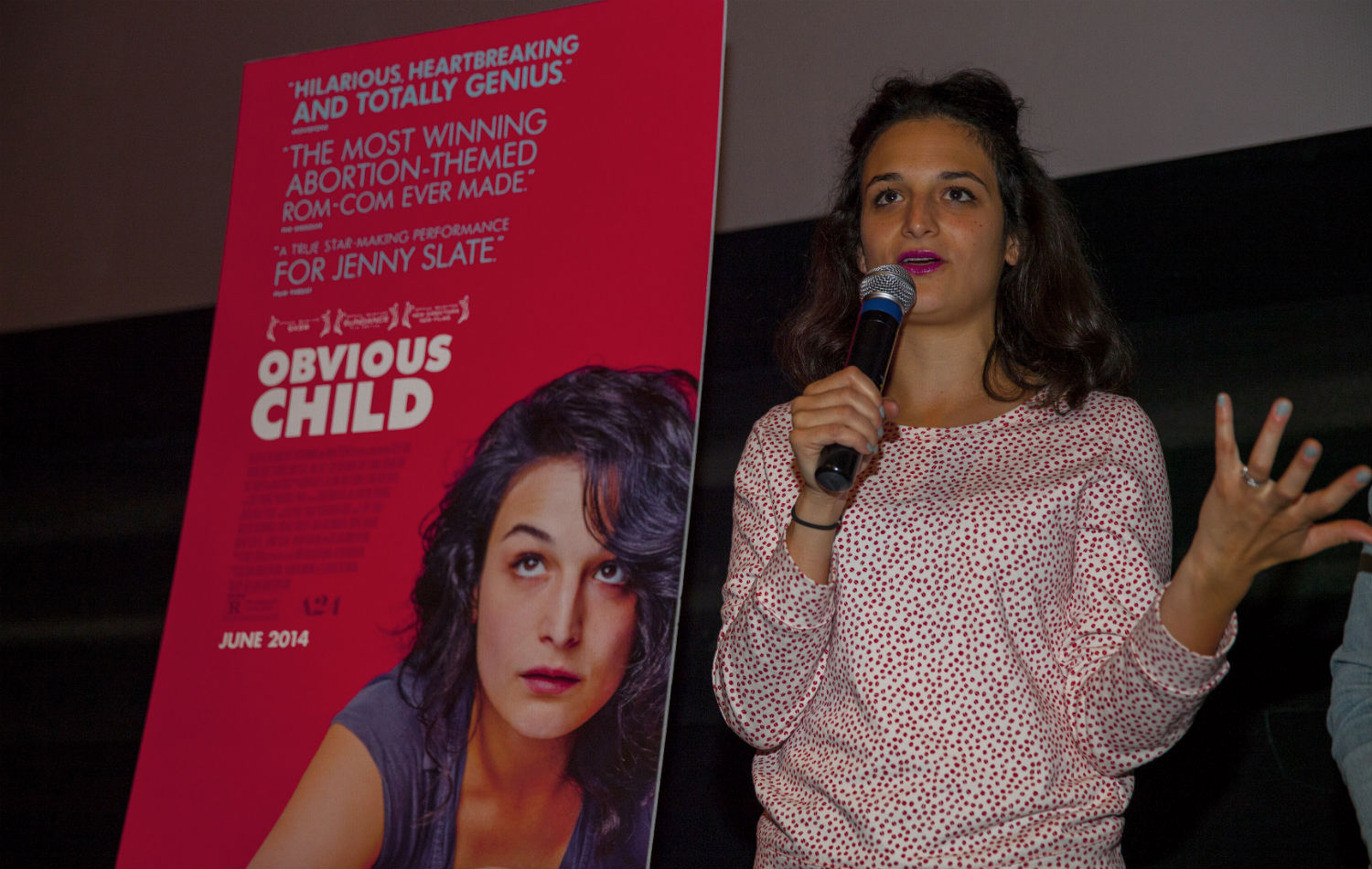
‘Obvious Child,’ the Abortion Comedy, Isn’t a Great Film, but It’s a Revelation ‘Obvious Child,’ the Abortion Comedy, Isn’t a Great Film, but It’s a Revelation
Nearly a third of American women will have an abortion at some point in their lives, but it’s an experience we almost never see on film.
Jun 5, 2014 / Books & the Arts / Michelle Goldberg

Why the Campus Rape Crisis Confounds Colleges Why the Campus Rape Crisis Confounds Colleges
Virtually everyone agrees the system is broken. But while some feminists want colleges to deliver justice, others argue it’s just not their job. Who is right?
Jun 5, 2014 / Feature / Michelle Goldberg

